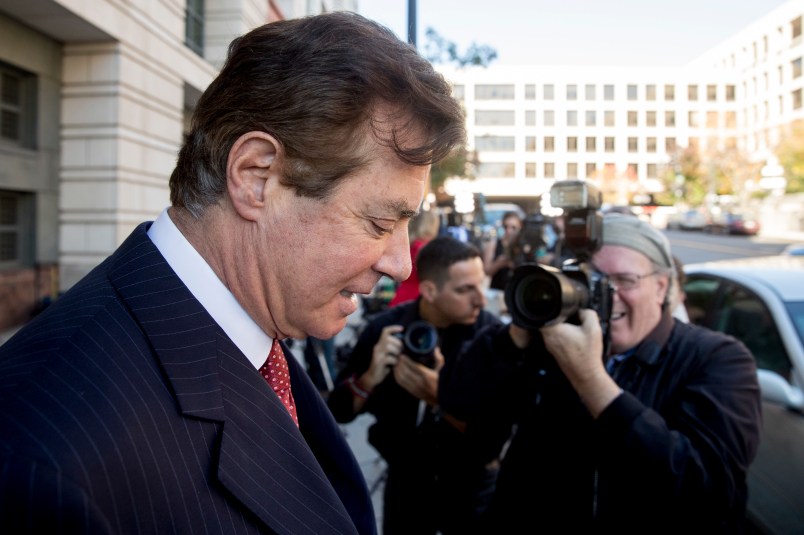MINSK, Belarus (AP) — A Ukrainian opposition lawmaker who helped uncover off-the-books payments to President Donald Trump’s former campaign chairman said Saturday that a one-time Austrian chancellor was among the European politicians secretly paid to lobby for Ukraine.
The lawmaker’s claim to The Associated Press came a day after the United States indicted former Trump campaign chairman Paul Manafort for allegedly paying former politicians to lobby on behalf of his client at the time, Ukrainian President Viktor Yanukovych.
Serhiy Leshchenko, a lawmaker in Ukraine, said Saturday that he saw the information about the former Austrian chancellor in a ledger of off-the-books payments to Manafort.
“I don’t remember the name, but I remember the position,” Leshchenko told the AP.
The lobbying by unnamed political figures, identified in the indictment as the “Hapsburg Group,” allegedly took place in 2012-13, when Ukraine was moving toward integration with the European Union.
Leshchenko also said that former Austrian Chancellor Alfred Gusenbauer had lobbied for Ukraine when the Russia-friendly Yanukovych was in power.
“He lobbied for the interests of Yanukovych right after his election,” Leshchenko said. Yanukovych was elected in February 2010 and fled the country amid massive anti-government protests four years later.
However, Gusenbauer told the Austrian national news agency APA that he never acted on Yanukovych’s behalf.
“I never undertook activities for Mr. Yanukovych” or his party, the news agency quoted Gusenbauer as saying. He said his interest in 2012 and 2013 was bringing Ukraine closer to Europe.
“In public events in Paris, Brussels and Berlin, I advocated the European Union concluding an association agreement with Ukraine,” he said.
The EU integration issue eventually led to Yanukovych’s downfall.
Yanukovych had been expected to sign an “association agreement” with the European Union that would allow freer movement of goods between Ukraine and EU member countries. The agreement was seen as a step toward EU membership, but Russia opposed any tilt to the west by Ukraine.
At the last minute, Yanukovych backed off on signing the agreement, sparking a protest rally in Kiev. Police brutally dispersed the demonstrators, which galvanized opponents to call larger protests that developed into a huge, ramshackle village of tents and huts in the center of the capital, Kiev.
The protests persisted for months and descended into violence, which climaxed with the shooting deaths of scores of people by still-unidentified snipers. Faced with growing chaos, Yanukovych fled Ukraine in late February 2014 and ended up in Russia.
___
Jim Heintz in Moscow and Geir Moulson in Berlin contributed to this story.



